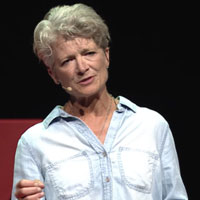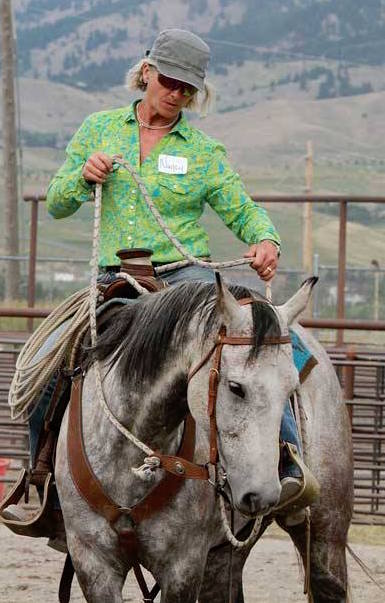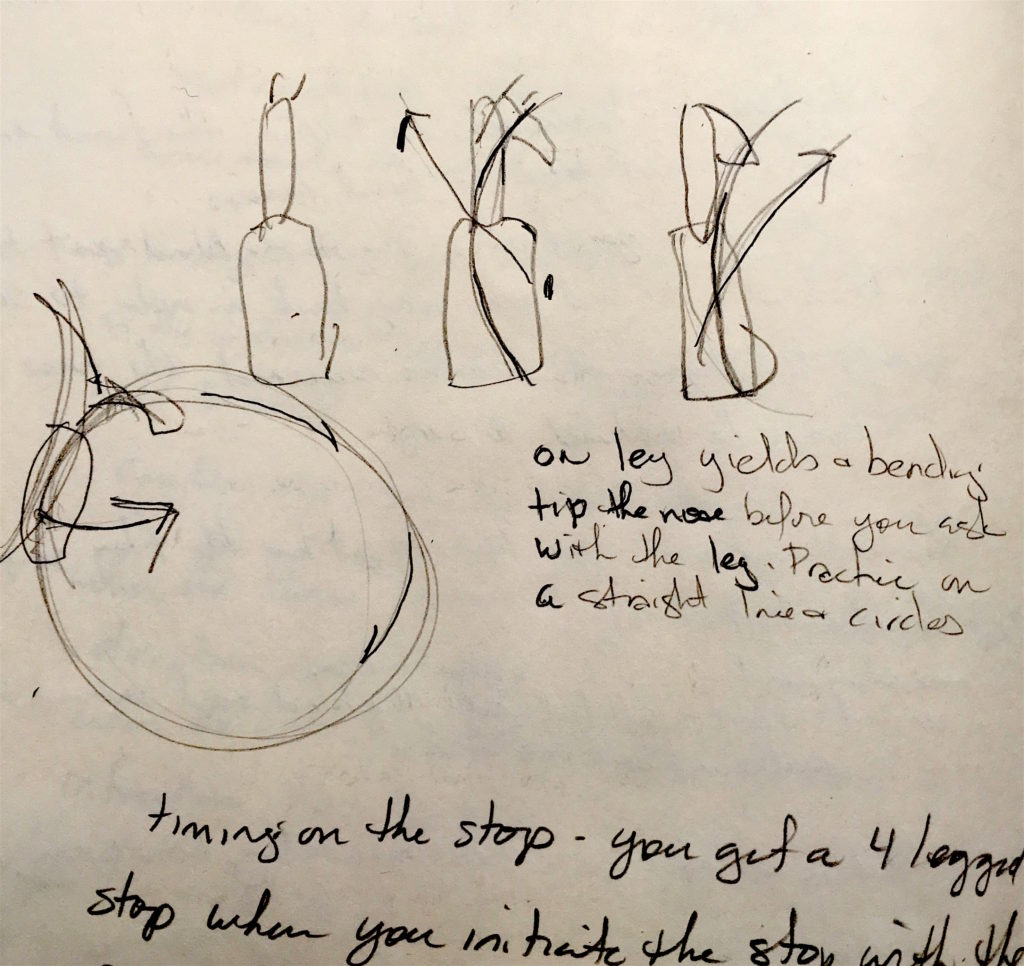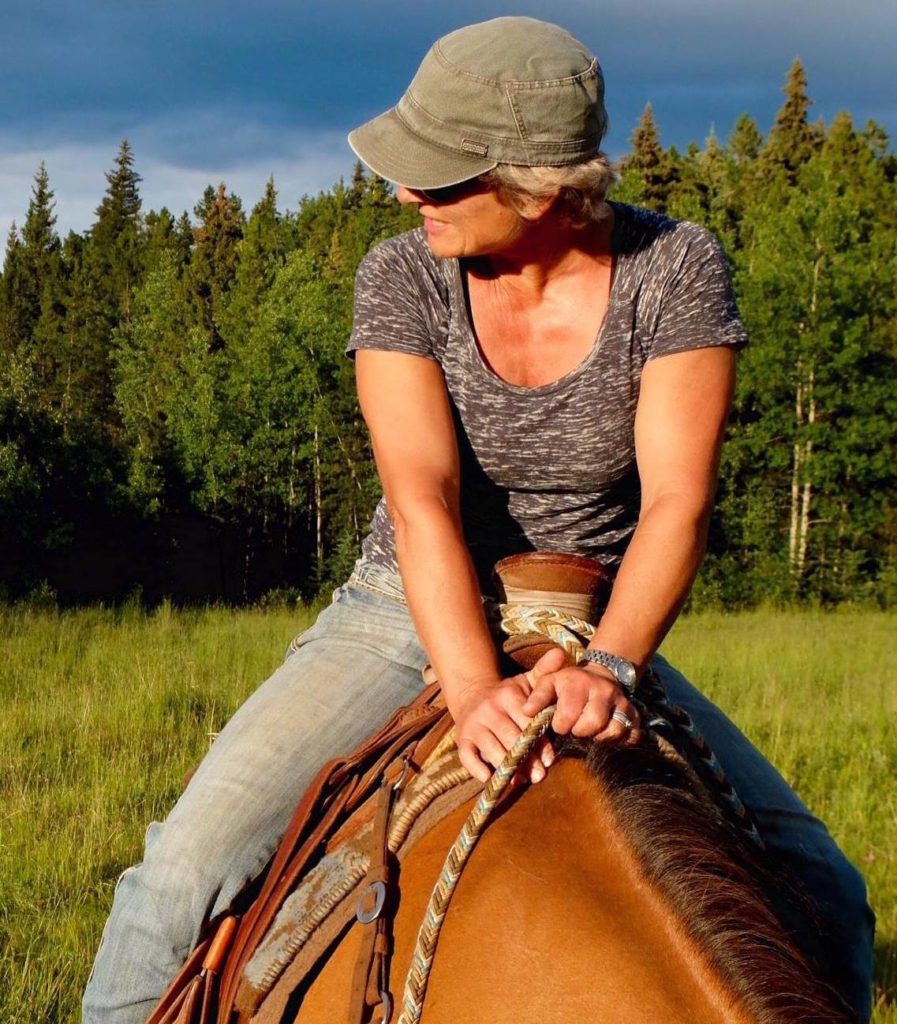 Editor’s Note: We hear this week from Nancy Lowery of Calgary, Alberta. Lowery has been blogging about her Leadership Learning through Horsemanship Experiences for more than a decade. A recent interview series began as “One Foot in the Arena” to explore what Calgary leaders have learned through their relationships with horses.
Editor’s Note: We hear this week from Nancy Lowery of Calgary, Alberta. Lowery has been blogging about her Leadership Learning through Horsemanship Experiences for more than a decade. A recent interview series began as “One Foot in the Arena” to explore what Calgary leaders have learned through their relationships with horses.
Read Lowery’s “Cherry Picking Optimizes My Riding Experience.”
Lowery writes:
When I say “they’re the real deal,” who comes to mind?
There are many words that have appeared in the past few years, defining some new guru, concept, or program. ‘Authentic’ is just one that has become popular online and in the arena.
 Google ‘authentic horsemanship’ and almost 270,000 results are available in less than a second. But what does authentic actually mean?
Google ‘authentic horsemanship’ and almost 270,000 results are available in less than a second. But what does authentic actually mean?
Authentic means genuine, but who is the ‘real deal’ in the world of horsemanship clinicians? One questionable example that comes to mind was the guy I watched years ago: on the back of the horse, repeating the words of Ray Hunt as if he were a recording. He was doing an admirable job on the mechanics, until he missed a simple transition.
I do recall Ray losing his cool with a person. Never a horse.
It is natural to copy someone you admire; it’s how we learn. But being authentic is about taking something you’ve learned and making it your own when you explain it to someone else.
Clinics have become a great source of social learning. But to be a great clinician you can’t simply repeat what someone else has said, you also must be a good teacher. You need to understand not only how horses learn, but also how people learn.
So how does one assess if someone will be a good teacher for you?
How will you know if they are the real deal?
You have to start by being a good student.
- Attend a clinic with notebook in hand and write down what is relevant to you. Sketch ideas that help describe what you are seeing and hearing.
- If someone says something or asks a question you don’t quite understand. Write it down.
- Avoid asking questions about your hypothetical problem horse at home. No one can really answer that. If you see a horse and rider demonstrating something similar to the problem you have. Watch and listen to the explanations they are given.
- If you aren’t clear on why they were told to do something, ask for clarification. If the person delivering the clinic can’t explain it to you, they either are speaking above your level of horsemanship or they’re not as great as they think. Or both.
 Attending a clinic with a top horseman is not a Silver Bullet to your horsemanship progress. It requires a lot of work on your part. Considering the cost, a good question to ask yourself is: “Are clinics the best way for me to learn?”
Attending a clinic with a top horseman is not a Silver Bullet to your horsemanship progress. It requires a lot of work on your part. Considering the cost, a good question to ask yourself is: “Are clinics the best way for me to learn?”
A clinic might not be the right environment. I’ve seen many beginner riders overwhelmed and brought to tears, never to return. Consider how many one-on-one lessons you could get for the same investment. Exposing your horse to the chaos of a clinic is a great goal, but your horsemanship has to be prepared for that.
Consider auditing one first:
- As you sit and watch, look for riders who stand out? That individual isn’t necessarily the best dressed, but they may be the handiest person in the arena.
- Watch to see how they handle various situations. Most importantly: are they consistent? Do they manage things well on their own, but lose their cool in a tight situation? The tight situation gives you insight to how they manage any confrontation and it shows who they truly are.
- At lunch or end of the day introduce yourself to others. Based on what you observed, ask questions. Most people love to talk about themselves and their horse. Maybe they also teach or can point you in helpful directions. Your questions and their answers might help you decide on some learning options.
In fact, finding the real deal might not be at a clinic. It might be down the road or the other side of town, with a different person and in a different learning format. That someone has to be able to meet you where you are in your horsemanship journey. An authentic teacher can help you make the connections to improve. A great teacher helps you love what is difficult.
As Tom put it in True Unity: Willing Communication between Horse and Human:
“This is something I have had to develop in myself, for myself, by myself. The true unity and willing communication between the horse and me is not something that can be handed to someone—it has to be learned. It has to come from the inside of a person and the inside of a horse.”

Nancy Lowery pauses to enjoy her riding moment.
This is a truth I have been stumbling upon for many years and I’m encouraged by the fact that it is been recognized
Thanks so much for this article. Well-known clinicians are good to check out, but it is not necessarily the best place to find the help you need. Being open to new trainers in your area, that can speak their own ideas (and not parrot words/ideas of some trainer they idolize), is a wonderful option for a lot of individuals. “Authentic” has definitely become a new buzz word I’ve started to hear; kind of like “natural horsemanship”….what does it really mean. Thanks for some great insight!
ah, yes, the real teachers among us…once rare, now becoming less so. Long overdue…this should help us all! Thanks for this article and thanks to the “real” teachers…and many more.